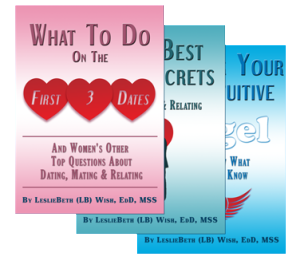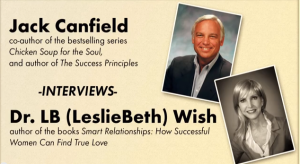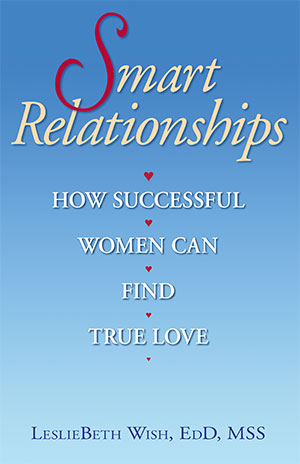
By LeslieBeth Wish, Ed.D.
Michigan Judge Rosemarie Aquilana’s sentencing of USA gymnastics physician Larry Nassar to 175 years in prison for sexual abuse of the156 women gymnastics accusers finally gave these women survivors more than justice: It gave them back their self-respect, trust in their instincts, as well as emotional, legal, and cultural support. It’s too bad it took 20 years to get all these things.
How Could This Sexual Abuse Have Lasted So Long?
It’s not just institutional preservation that allows organizations such as the USA Gymnastics or Michigan State to turn a blind eye to sexual abuse.
And it’s not that the women didn’t realize that Dr. Nassar was touching them inappropriately. They did. At some point their intuitive judgment was correct: This touch was a sexual violation.
One of the women spoke up. And who better to tell than the women’s coach. But, whistle-blowers are never popular—especially when money, fame, and shame are involved.
Our American cultural attitude toward sex also plays a part. We have lost the sanctity and privacy of sex and the body. Hollywood, for example, turned many blind eyes to Harvey Weinstein’s predatory power plays. By then, sex and harassment had long become “no big deal,” “just sex—it’s typical, bad boy behavior–get used to it—and look at the benefits you get out of agreeing to it.”
A Very Brief View of the Slow Lift of the Sexual Curtain, 1940’s-1970’s
I am not suggesting that we revert to my grandparents’ 1940’s—or earlier view when you couldn’t use the word underwear. My grandmother called them unmentionables. Nor do I think we should reinvigorate the belief decades ago that a girl who kisses on a first date is a slut—or at least easy.
The 1950’s restrictiveness and rigidity was ripe for the 1960’s over-correction of sexual values and behavior. Yes—in the 1950’s there was plenty of what was called “out of wedlock sex” and pregnancies back then. Still, the 1950’s endorsed an overall, cultural guide about the value of sex in life.
By the 1960’s, the invention of The Pill, along with feminism, helped stretch that over-correction even farther to the place where we are today.
The Raising of the Sexual Curtain, 1980’s and on
I remember when my stepdaughter was upset that my husband and I would not allow her to go to an unsupervised party at a friend’s house. I had called the mother and asked her if she and her husband would be home.
She took affront at my question. “What could happen?” she said. “These are good kids. So, some marijuana, some making out—believe me, less than 50% of these girls is virgins.”
Several months later a teenage boy came to our home to watch a hockey game on television with my teenage stepdaughter, my husband, and me. During a break in the game, a series of ads came on for: tampons, menstrual cramp pills, the best bra, leak-proof underwear for women, jock itch medication for men, and cures for diarrhea or constipation.
It was clear that my stepdaughter and her friend were uncomfortable. And why shouldn’t they be?
Their discomfort was not from social prudishness or willful ignorance of the body but from the personal loss of power to select what to talk about, what to reveal, and to whom regarding anything to do about the body.
The Sexual Curtain is Now Gone: “The Emperor’s New Clothes”
One of my favorite stories is “The Emperor’s New Clothes” about a king who runs through town with very little clothing on (in some versions he is naked), and no one says a word because even though the society’s rules are not printed anywhere, everyone knows you most certainly are not supposed to criticize the king.
By losing our personal power over anything privately, publicly, and socially related to our bodies, we also lose the belief and value that our bodily boundaries should not be permeable—but should rather be under our control and consent.
Like air, we don’t know that we have breathed in this cultural waft of the disappearance of the sexual curtain. We’ve exchanged prudery and ignorance for loss of sexual sanctity, privacy, self-respect, and permission to say yes or no.
Even worse, we have lost the safety net of believing that someone out there would not only be outraged at sexual violations but would come to our aid.
The loss of this support is a breeding ground for shame, fear, and secrecy.
Paradoxically, the “tell-all” culture that preaches that “you are not healthy unless you undress yourself psychologically and reveal all your secrets” further robs survivors of personal decision-making and power.
In the words of the hundreds of sexual abuse survivors I’ve counseled, they struggle to believe that the abuse happened to them—and is not of them.
Many of my clients said if they did tell someone about their past, they felt a need to add a disclaimer: This information is not to be used to explain why I (fill in the blank: date a lot; don’t date; like to look nice; not as concerned about my looks; want a career; want to be a stay-at-home parent, etc.)
But we humans like quick explanations to avoid the complexities of life.
So, it’s understandable why coming forward to denounce someone publicly is such a lonely road regardless of how many others have spoken up. It strips you of your free will to rely on your intuitive trust about whom and what to tell about your past. And it exposes you to endless, inaccurate assessments of you.
And if these factors were not enough, the people who colluded often find ways to deflect responsibility for the blame. The President of Michigan State allegedly made self-serving remarks that minimized personal accountability, and which compounded the sense of betrayal in the survivors.
All the more reason to respect and applaud the emotional bravery of all the women who stood up to the USA Gymnastics, Michigan State, Larry Nassar, and the world. They are heroes to emulate.
LeslieBeth Wish, Ed.D. is a nationally recognized licensed psychotherapist and author of “Smart Relationships,” a research-based self-help book for women who are smart about work but not love. Sign up at www.lovevictory.com and take a look at the intuition workshops https://lovevictory.com/shop/







